|
Washington Health System - Holi and Eid Al-Fitr Celebrations 2022
Holi:
Rangwali Holi (Dhuleti) is the Hindu festival of colors. It is a day when family and friends come together to cover each other in colored powders and laugh, share Holi delicacies including food and drink. Prior to the meal, one of the residents provided education on the holiday....
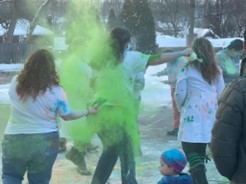 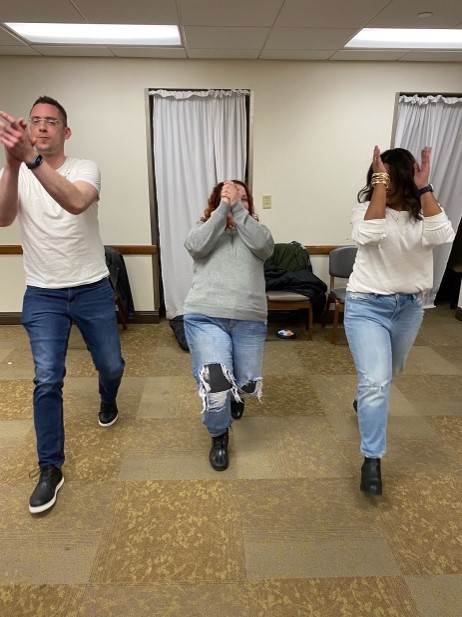 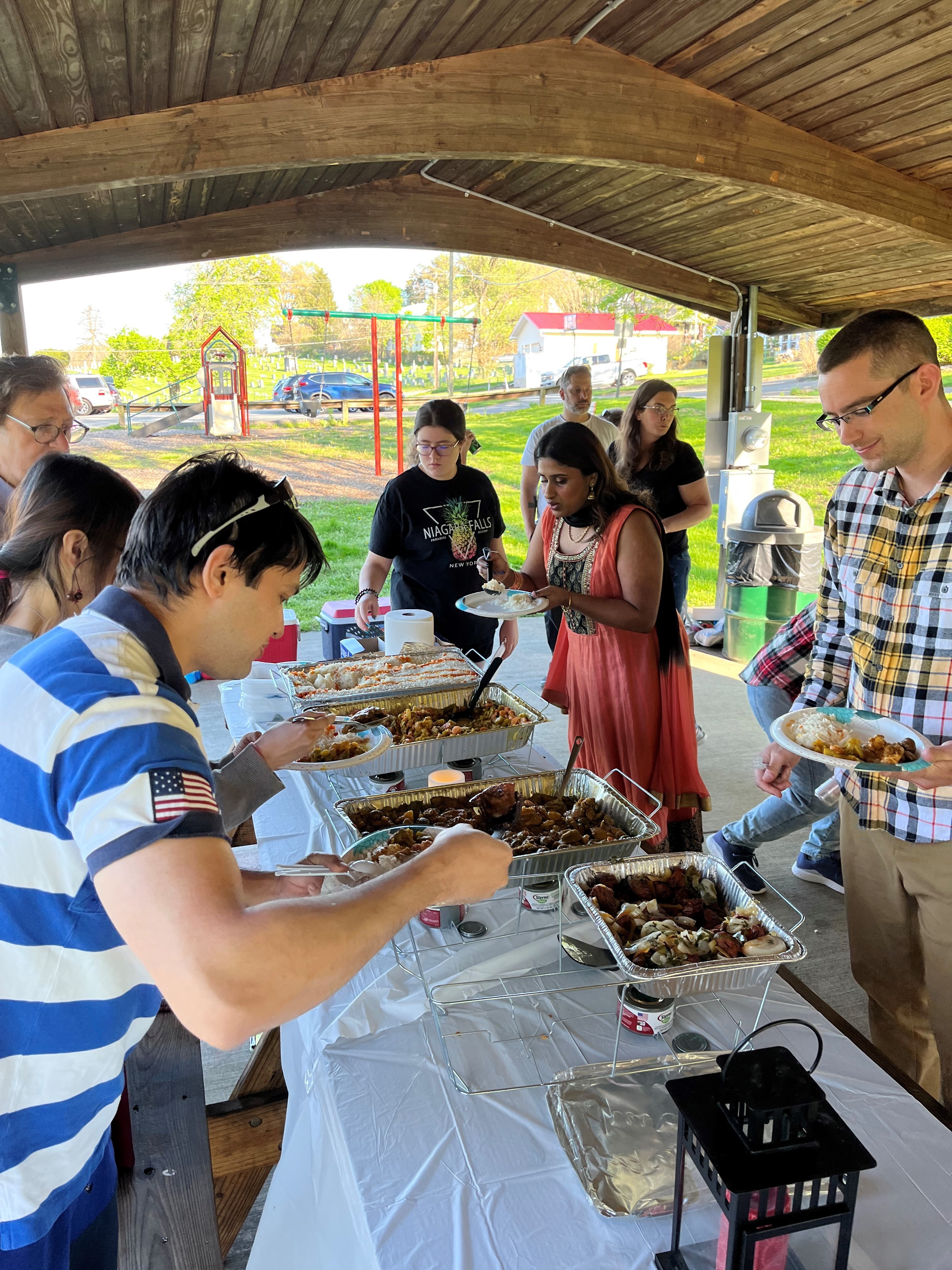
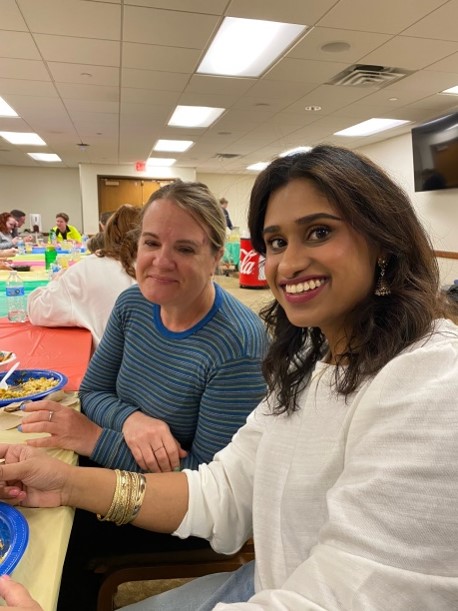 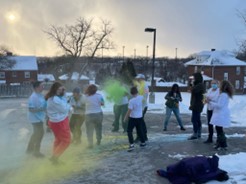 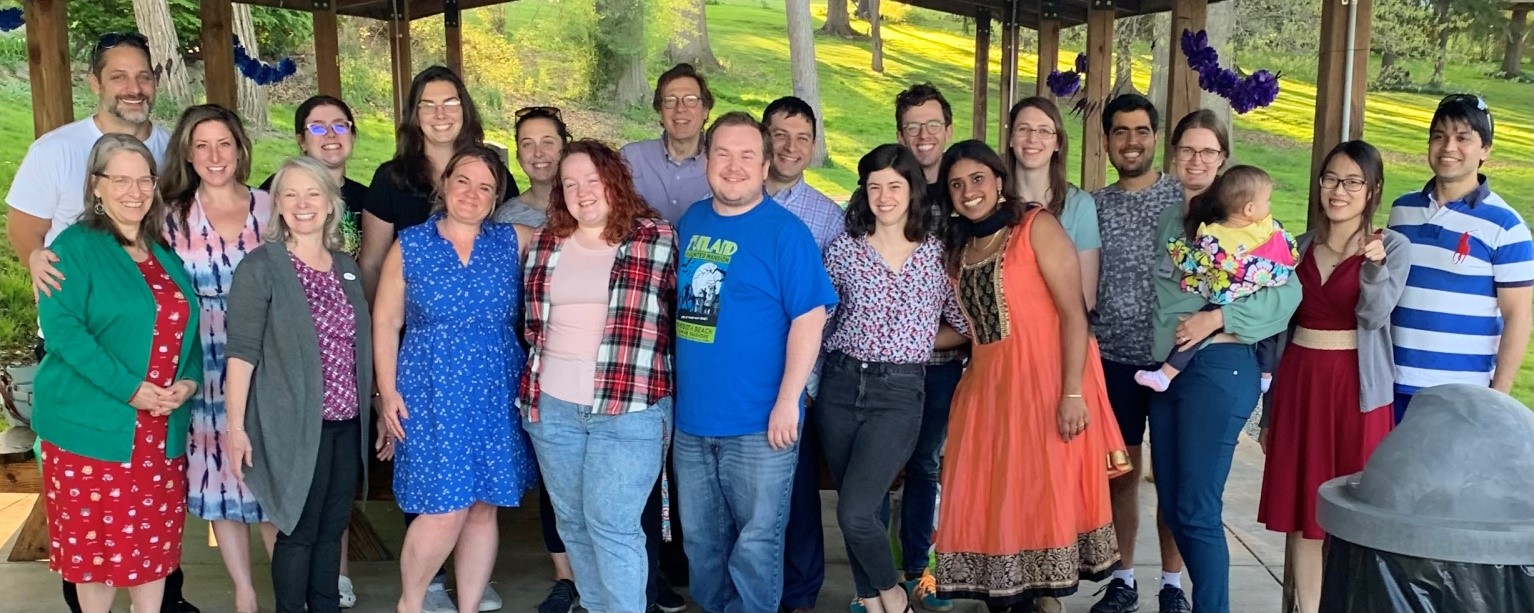
The meal included chicken biryani, chicken tikka masala, vegetable korma, raita, butter naan, and samosas. There was also a mango lassi to drink and gulab jamun and jalebi for dessert. After the meal, they celebrated outside by throwing the traditional colors.
Eid Al-Fitr:
Eid al-Fitr (“festival of breaking the fast”) is the Islamic holiday marking the end of the fasting month of Ramadan. We again began the celebration with some education on the holiday. The meal included vegetable curry, chicken tagine, and lamb kabobs. There was also baklava and cardamom cupcakes to celebrate. Both events were very well received.
Results/Outcome Survey
1. What was the general understanding of the purpose of the project/program by participants?
The overall purpose of the program was to choose an activity to help with the emotional exhaustion residents reported in their Maslach Burnout Inventory survey amid the COVID pandemic. Two of our focuses this year were on improving resident wellness and increasing our activities surrounding diversity and inclusion and so we chose family dinners surrounding the holidays of Holi and Eid al-Fitr. The events featured culturally appropriate food while providing education about the holiday.
One resident said: “I think the purpose of our dinners were to encourage everyone to come with their families and with an open mind. It allowed us to learn about the beliefs and values of another culture, partake in their food, and do an activity that was significant for that culture. It gave everyone a deeper knowledge and connection that we previously didn’t have”.
2. During the project/program, what tangible tools or strategies were demonstrated or taught (i.e, coping skills for wellness and life balance)?
We chose holidays that not all our residents were familiar with, and so as the resident above mentioned it helped people come to the event with an open mind and increased connection between residents, faculty, and their families
3. What word(s) best describes how you feel when you are experiencing stress or well-being imbalance?
One resident describes: I think the best way to describe this for me is either "overwhelmed" or "loss of control." When I feel stress or wellbeing imbalance, I often notice that little things that go wrong in my day-to-day life seem a lot more difficult to deal with, and things that usually wouldn't get under my skin or bother me suddenly make me incandescently angry. I think that is because in those times, my reserve is so depleted that I cannot take a step back from what is going on and think about it with a clear head. Instead, every small inconvenience or set back feels like it will be the thing that buries me, and I just feel so overwhelmed. I can tell that when I get some of that wellbeing reserve repleted, I have a lot more bandwidth for dealing with the inevitable inconveniences of life.
4. What suggestions do you have to increase the probability of success for the project/program for other institutions?
We would recommend choosing holidays or events that speak to each residency group individually.
Allowing families increased the impact and the ability of the residents to join the events.
5. What do you intend to do, upon returning to work, that you learned and practiced during the activity, that will improve your response to stressful situations?
The activities showed all of us the connection and inclusion that learning about other cultures can bring. I think it increased a sense of connection for the residents to help improve well-being and provided activities to look forward to throughout the year.
|






